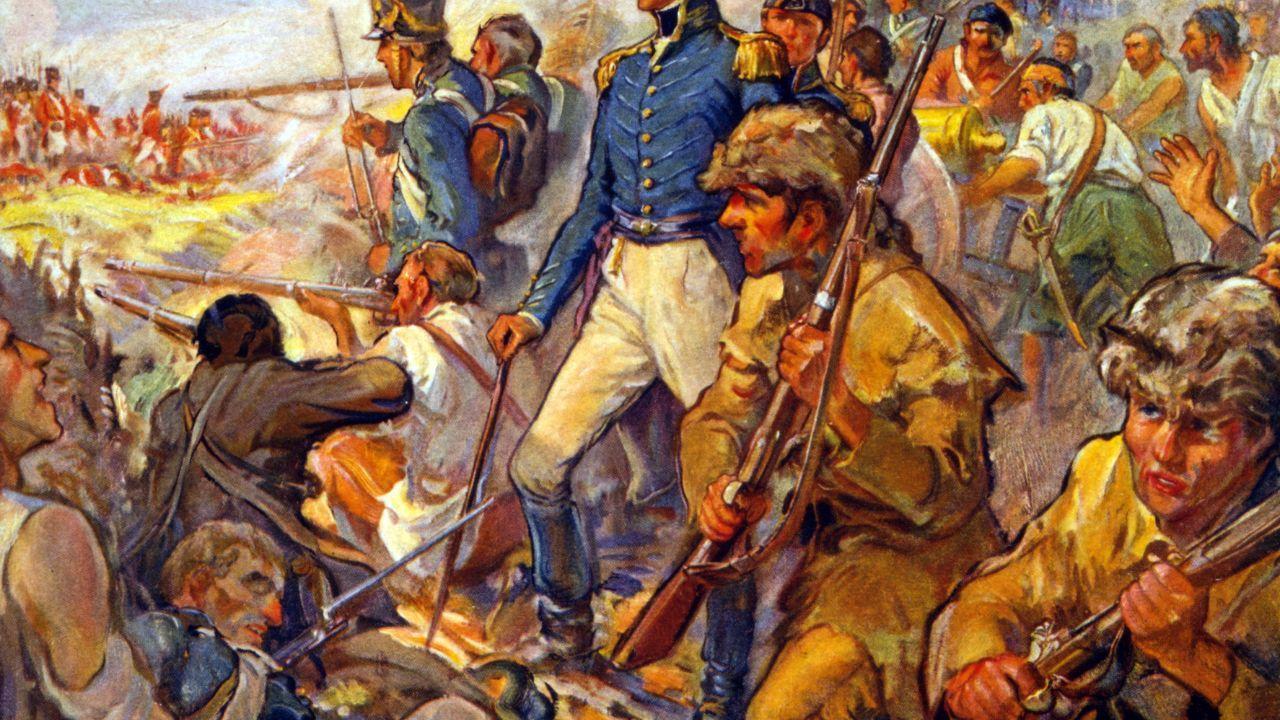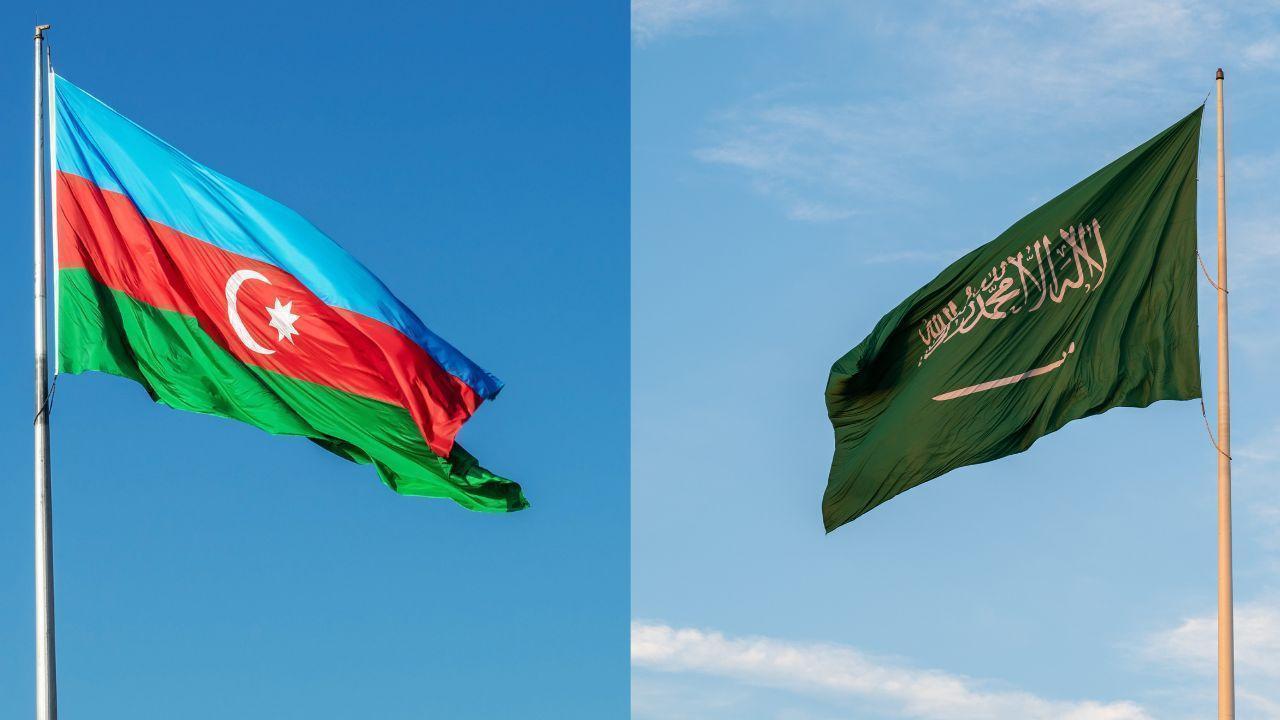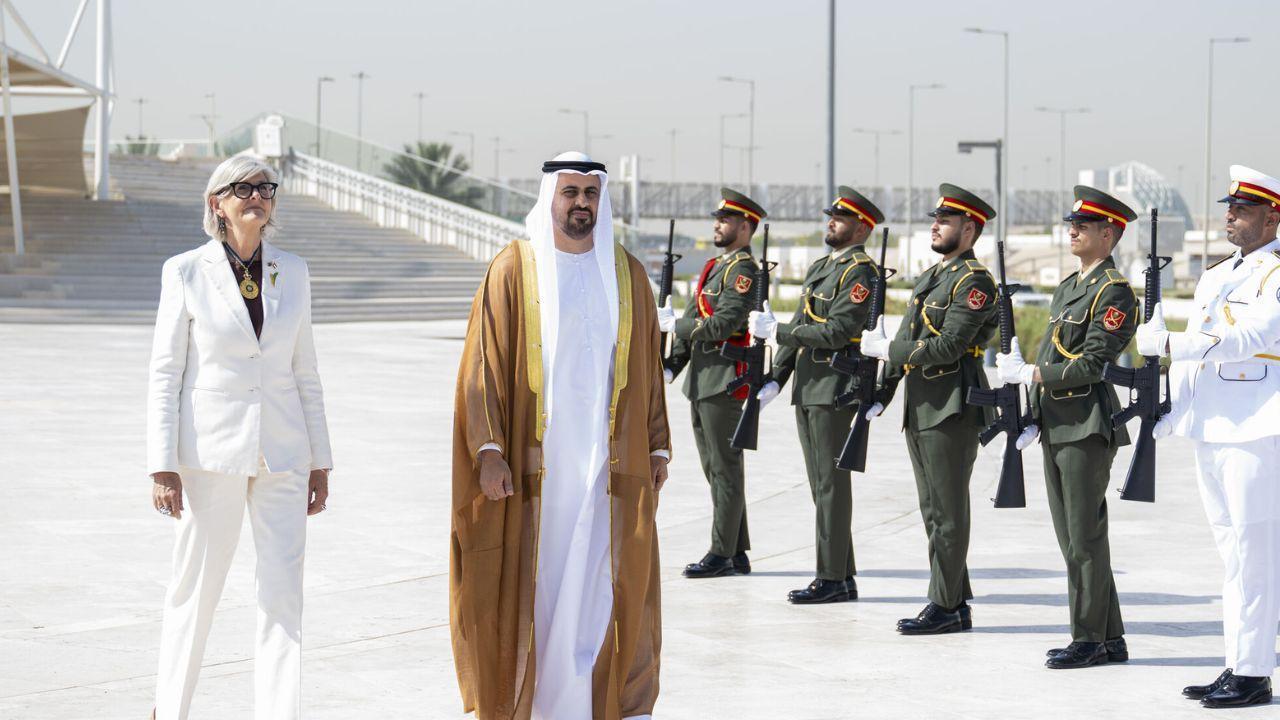
Post by: Layla Badr
How the Battle of Dibba Shaped the Identity of the UAE Region
The Battle of Dibba holds a special place in the history of the UAE, marking a significant turning point in the region's journey toward its modern identity. Situated on the northeastern coast of the UAE, Dibba is a coastal city that witnessed a pivotal event in the 19th century, one that reverberated across the Gulf and helped shape the political landscape of the region.
In this article, we will explore the historical context of the Battle of Dibba, its significance, and how it played a role in the formation of the UAE as we know it today. From the causes that led to the battle to the long-lasting effects it had on the region, we’ll break down how this confrontation helped define the culture, politics, and identity of the UAE.
What Was the Battle of Dibba?
The Battle of Dibba took place in 1819 and was a military confrontation between the forces of the British Empire and the local Arab tribes in the region. At the time, the area now known as the UAE was a group of individual emirates with different tribal rulers and varying degrees of independence. The British were seeking to assert their control over the region as part of their larger strategy to secure maritime trade routes and suppress piracy in the Arabian Gulf.
Dibba, being a strategically located port city, was of great interest to both local rulers and external powers. The local tribes in the area, led by the Emir of Dibba, resisted British influence and military incursions. The Battle of Dibba was one of the key confrontations that arose from these tensions.
The Causes of the Battle of Dibba
In the early 19th century, the Gulf was a hotspot for piracy, with several local tribes, known for their maritime skills, engaging in attacks on merchant vessels. The British, with their growing influence in the region, wanted to eliminate piracy and ensure safe passage for their trade ships. The British had already established treaties with other coastal cities and sought to bring Dibba under their control.
The Emir of Dibba, however, did not comply with British demands, and this led to a series of hostilities. The British, aiming to assert their power in the region, launched a military campaign to subdue the local tribes. The Battle of Dibba was the culmination of these hostilities, with British forces launching an assault on Dibba to force its submission.
Key Events During the Battle
The battle itself was a fierce confrontation. British forces, led by Sir William Keir, laid siege to Dibba. The local tribes, including the defenders of Dibba, fiercely resisted the invasion, determined to maintain their independence and protect their livelihoods. The battle was characterized by intense fighting, with the British using their superior naval and artillery forces to overpower the defending tribes.
Despite the bravery of the local forces, the Battle of Dibba ended in a decisive victory for the British. The city was captured, and the British imposed their influence over the region. The defeat of Dibba’s defenders marked the beginning of a shift in the power dynamics of the Gulf, with the British cementing their position as the dominant foreign power in the region.
The Aftermath of the Battle of Dibba
Following their victory at Dibba, the British implemented a series of measures to consolidate their control over the UAE and the surrounding areas. The battle, while a military victory for the British, was also a key moment in the history of the UAE, as it marked the beginning of a prolonged British influence in the region.
One of the key outcomes of the Battle of Dibba was the signing of the General Maritime Treaty of 1820, which established the British as the primary authority in the Gulf. This treaty, known as the Treaty of Peace, was signed by several local rulers, including the rulers of Dibba, and it marked the end of pirate activities in the region. The treaty laid the groundwork for the British Protectorate in the UAE, which lasted for much of the 19th and early 20th centuries.
Although the British gained control, the local tribes remained resilient, and their identity and culture persisted. The Battle of Dibba was, therefore, a critical event in the formation of the UAE's modern identity. It set the stage for the region’s eventual unification under the leadership of the seven emirates that would later form the United Arab Emirates in 1971.
How the Battle of Dibba Shaped the UAE’s Identity
The impact of the Battle of Dibba on the UAE's identity can be seen in several key ways:
Resistance and Resilience: The battle symbolized the resilience of the local people in the face of foreign domination. Despite being overpowered by the British, the tribes’ determination to protect their land and culture became an important part of the UAE’s national narrative. This spirit of resistance, combined with their eventual cooperation with British authorities, set the stage for the UAE's ability to balance tradition with modernization in the 20th century.
Cultural and Historical Significance: The Battle of Dibba is an important part of the cultural and historical heritage of the UAE. The legacy of the battle continues to influence the UAE's sense of pride, as it represents the region’s resistance to foreign control. It is also a reminder of the complex relationship between local tribes and foreign powers, particularly the British.
Path to Modern Unity: The outcome of the battle, with the British consolidating their power in the region, eventually led to the formation of the UAE as a unified nation. The event helped establish the political and territorial borders that would later define the UAE’s identity. The subsequent treaties and agreements made it possible for the emirates to cooperate with one another, leading to the eventual unification in 1971.
Strategic Importance: Dibba's strategic location on the coast of the UAE made it an important focal point for future political and economic developments. The city's role as a trade hub and its proximity to maritime trade routes meant that the region would continue to hold strategic importance, both for local rulers and foreign powers.
The Battle of Dibba was a defining moment in the history of the UAE. It not only marked a shift in the political and military dynamics of the region but also laid the foundation for the modern identity of the UAE. The battle's legacy can still be felt today, as it highlights the resilience, culture, and strategic importance of the UAE's people.
The events surrounding the Battle of Dibba remind us that history is not just about battles, but about how those moments shape the stories of nations and the identities of their people. The UAE’s rich history, from the Battle of Dibba to its unification, is a testament to the strength and determination of its people. Understanding this pivotal battle helps us appreciate the UAE’s journey to becoming the thriving nation it is today.
#trending #latest #BattleOfDibba #UAEHistory #UAEIdentity #UAEHeritage #MiddleEastHistory #GulfHistory #DibbaBattle #EmiratesCulture #UAEUnity #HistoricalBattles #GulfWarHistory #UAEResistance #UAEEvents #UAEHeritageSite #UAETribes #UAEHistoryMatters #ArabianGulfHistory #BritishInTheGulf #MiddleEastConflict #UAEFormation #breakingnews #worldnews #headlines #topstories #globalUpdate #dxbnewsnetwork #dxbnews #dxbdnn #dxbnewsnetworkdnn #bestnewschanneldubai #bestnewschannelUAE #bestnewschannelabudhabi #bestnewschannelajman #bestnewschannelofdubai #popularnewschanneldubai

Goa Positions Itself as a Future-Ready Tourism State at Arabian Travel Market 2025, Dubai...Read More.

Azerbaijan Airlines and Saudi Arabia discuss expanding air routes to boost tourism and economic ties, with over 94,000 Saudi tourists visiting Azerbaijan....Read More.














Goa Positions Itself as a Future-Ready Tourism State at Arabian Travel Market 2025, Dubai
Goa Positions Itself as a Future-Ready Tourism State at Arabian Travel Market 2025, Dubai

First-of-its-kind Satellite to Measure Carbon in Rainforests
The Biomass satellite will measure how much carbon rainforests store, helping track climate change a

Mark Carney's Liberals Win Canada Vote, Eye Talks With Trump
Mark Carney leads Canada's Liberals to election win, plans to meet Trump for new trade talks and boo

Etihad Airways Expands Fleet with New Airbus A321LR Aircraft
Etihad Airways launches Airbus A321LR with luxury features, expanding fleet to meet travel demand. N

Liverpool Win Premier League After 5-1 Victory Over Tottenham
Liverpool clinch Premier League title with a 5-1 win over Tottenham at Anfield, as Mohamed Salah end